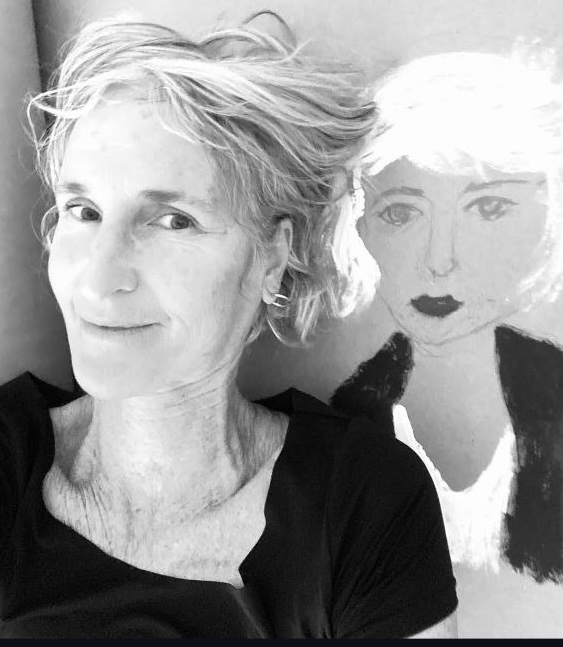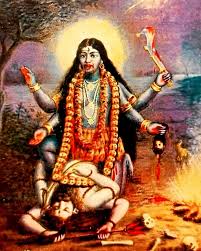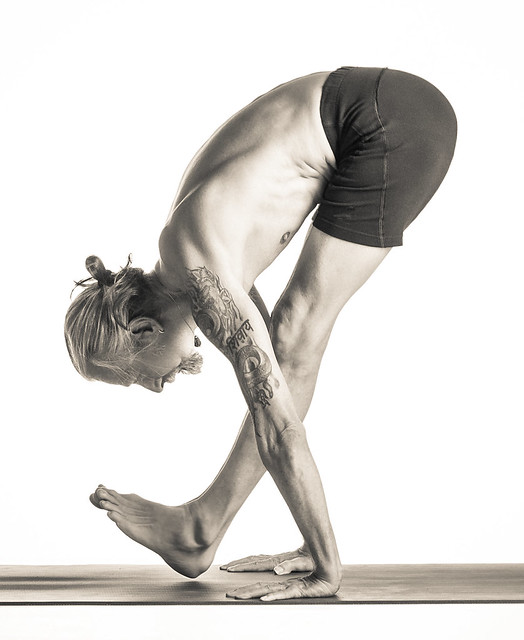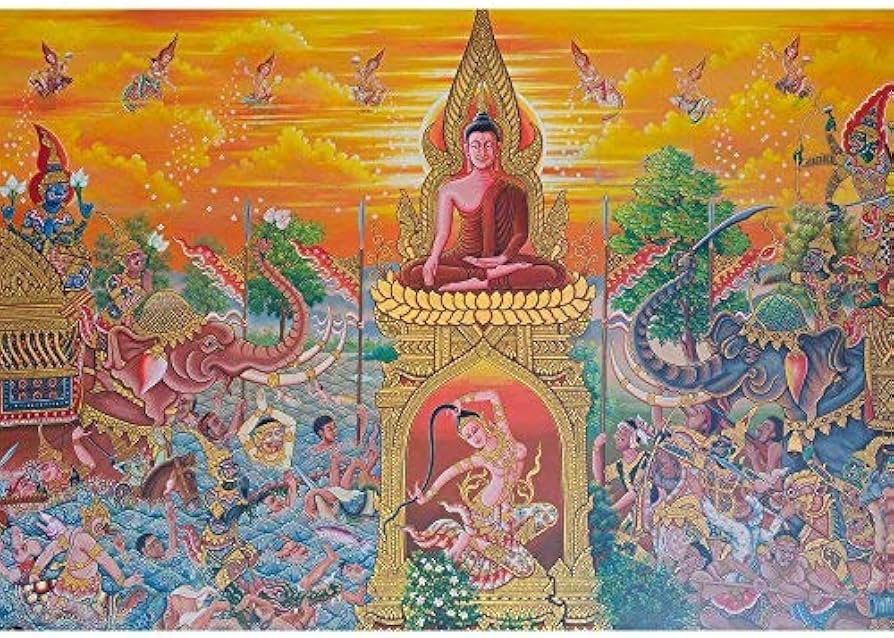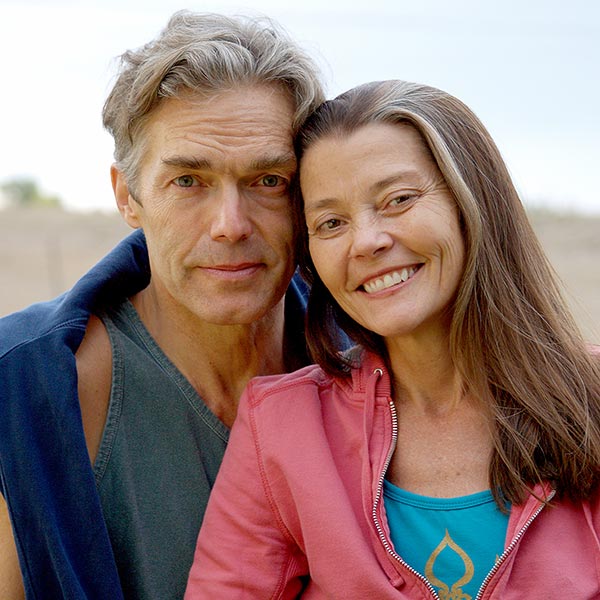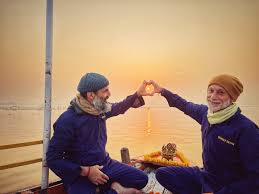Discover Escaping Samsara
Escaping Samsara

Escaping Samsara
Author: Nathan Thompson & Evgeny Dziatko
Subscribed: 72Played: 2,356Subscribe
Share
© 2023
Description
Escaping Saṃsāra - Yoga and Meditation Podcast about practices that liberate us. Interviews with spiritual teachers from the yoga world and beyond. We are a group of friends dedicated to exploring the deep teachings of yoga and other spiritual traditions to see what unites them in their search for Truth and how each practitioner has danced with the Mystery. We want to learn from today’s elders about their paths and experiences. What has worked, what hasn’t and what is downright weird. From California psychedelic culture to Tantric Tibet we span the globe finding out what has helped people on their spiritual journey. We hope that it will be of benefit to our fellow truth seekers. OM
75 Episodes
Reverse
In this episode, we discuss the positives and drawbacks of different ways of practising Ashtanga Vinyasa Yoga. Tiaga covers thoughts and perspectives from his diverse backgrounds studying with Ramaswami, Dharma Mittra, and his experience teaching Mysore style for over 20 years. We also cover the core Tristana method, getting into the technique of breath and bandha, and how mudra exploration can enhance a regular asana practice. So if you enjoy Ashtanga or any form of Vinyasa yoga and want a good geek-out with two long-term practitioners, prepare a cup of chai, sit back and listen in.
In this episode of Escaping Samsara, Nathan Thompson sits down with Susi Sweeney—a lifelong yoga practitioner, teacher, mother, and now grandmother. Her path runs deep through 30 years of practice and cuts across the raw terrain of anxiety, eating disorders, motherhood, and aging. She trained with Pattabhi Jois. She now works through the sixth series. Every movement, she says, pulls something loose—grief, joy, memory. Susie explains how she raised children while maintaining her practice, how her mat held steady through births and breakdowns. Now a grandmother, she reflects on change—not as decline, but as deeper awareness. We discuss how the mat can be altar, battlefield, and therapist’s chair. Susie reminds us that yoga doesn’t ask for perfection. Just honesty. And repetition.
In this episode, Nathan sits down with Gregor Maehle to explore the deeper patterns that shape a lifetime of spiritual practice. Rather than focusing on technique or lineage, this conversation travels into the inner terrain—what changes as we mature in our practice, what stays hidden until we’re ready to see it, and how we relate to disembodied knowledge and the teachers who carry it. Gregor speaks candidly about moving through different phases of yoga—physical, philosophical, devotional—and the quiet shifts that signal growth. The conversation turns to the Yoga Sutras, not as a rulebook, but as a living inquiry: What is spiritual maturity? How do we move beyond surface-level understanding into direct experience? We also touch on: Why certain teachings only reveal themselves at the right time The role of intuition vs. tradition Disembodied teachers and mystical messaging The role of avidya (ignorance) in Yoga vs Buddhism Is someone "tending the light at the end of the tunnel"? This is one for listeners who are walking the long path—those in the middle of a cycle, or perhaps sensing the end of one.
What does it mean to walk a path across lifetimes, through lineages, and into the heart of divine practice? In this intimate and powerful episode, we sit down with Sat Inder Khalsa, a teacher of Ashtanga Yoga, student of Tantra, and dedicated seeker who has traveled many spiritual paths—including Wicca, Sikhism, Hinduism, and more—to uncover deeper layers of truth. Sat Inder shares his mission to help others integrate yogic and tantric wisdom into everyday life—guiding students through Sanskrit, philosophy, temple life, and the very human challenges of spiritual growth. With warmth and honesty, he opens up about his life journey, the mentors who shaped him, and what it means to truly embody practice. ✨ Whether you're a curious beginner or a long-time practitioner, this conversation is a heartfelt transmission of lived experience and grounded wisdom. 📿 Follow Sat Inder: @in_her_lap
Known simply as Darby, his story is one of movement, devotion, and surrender, which led him to India in 1979. There, in Mysore, he met Ashtanga guru Pattabhi Jois and embraced the transformative rigor of the practice. Darby’s experiences reflect a deep commitment to both physical and spiritual growth. Today, as a husband, father, and teacher, Darby shares how he balances family responsibilities with his practice, emphasizing surrender as the key to fulfillment. Whether you’re a seasoned practitioner or new to yoga, this episode offers wisdom on integrating Chinese Medicine, Hatha, and Kriya yoga into daily life while staying true to your spiritual core. We cover: Life in the original Mysore shala The original classical Ashtanga and the modern version Kriya yoga and integrating original hatha practices into modern practice Coming back to practice after parenthood What it really means to walk the yogic path
Kim Allen’s journey into Buddhist practice began in 2003, sparked by a period of deep personal change and suffering. Guided by her primary teacher, Gil Fronsdal, she devoted herself to intensive retreat practice, sutta study, and a life aligned with the Eightfold Path. With over 1,000 days of silent retreat, including practice in Sri Lanka and Buddhist centers across Asia, Kim brings a depth of lived experience to her teaching. She has studied with renowned teachers like Shaila Catherine, Bhikkhu Anālayo, and Bhikkhu Bodhi, and now offers teachings on classical texts, sutta study, and the integration of deep Dharma into daily life. In 2020, she took formal commitment as a Lay Contemplative, receiving the Dharma name Sumatimitta—a "wise friend" on the path. Kim’s teaching is rooted in direct experience—the willingness to meet reality as it is, with clarity, compassion, and wisdom. Her approach blends the profound depth of early Buddhist wisdom with the simple beauty of the present moment—whether it’s the sound of a hawk’s call or the ripple of aspen leaves. I’m honored to welcome Kim to the podcast today as we discuss the Dharma, the power of retreat practice, and what it means to live a contemplative life in the modern world.
In this episode we're once again joined by Richard Josephson for a Dharma discussion centred around family life as a vehicle for practicing Buddhist and general liberation teachings. With over 50 years of practice experience both as a monk and a family man, Richard Josephson is perfectly placed to give a wise perspective on how we can best practice, whatever our circumstances. Listen for insights on: Why you should or shouldn't become ordained The challanges of being a monk or nun How to find time in family life to practice well How to cultivate an attitude and find motivation to pursue the noble path How to find stillness and release from stress no matter what
What does it mean to be truly happy? In this episode of Escaping Samsara, I sit down with teachers Richard Freeman and Mary Taylor to explore the deeper layers of practice beyond asana and into meditation and philosophy. Drawing from their decades of experience in spiritual practice, they discuss the subtle intersections of yoga, Buddhism, and embodiment—revealing how happiness is not just an emotion, but a fully integrated state of being. We dive into the challenges of modern yoga, the pitfalls of spiritual ego, and how to navigate tradition without becoming dogmatic. Richard shares candid insights on guru culture, the Westernization of yoga, and the fine line between devotion and delusion, while Mary offers grounded wisdom on cultivating joy through breath, presence, and compassionate awareness. Join us for an illuminating conversation on the art of practice, the paradox of happiness, and what it really means to escape Samsara. Check out Richard and Mary's new book: Feeling Happy: The Yoga of Body, Heart, and Mind Find more info about Richard and Mary here.
In the latest episode of Escaping Samsara, I sit down with Spiros Antonopoulos and Barry Silver in person on the banks of the Ganga River in Varanasi to explore their incredible project, Gently Down: Bathed, Beaten, and Blessed — a 20-year journey of artistic and spiritual collaboration rooted in the sacred energies of the Ganga and the Maha Kumbh Mela festival. Spiros and Barry first met as yoga students in New York City, unaware that their paths would intertwine for decades, leading them back—again and again—to the ancient flow of India’s most sacred river. We discuss: 🔹 The power of consecration—how objects, spaces, and even moments can be transformed into sacred vessels 🔹 The ritual journey of Bathed, Beaten, and Blessed 3.0 at the Kumbh Mela festival 🔹 How purification, intention, and devotion anchor us in deeper realities 🔹 The intersection of yoga, esoteric traditions, and artistic expression
Ajahn Kovilo joins me from the Clear Mountain Podcast and Richard Josephson - a lay yogi living in a California temple. We discuss the intersection of yoga, Buddhism, and mysticism in general. We cover Emptiness, pranayama, and the different paths of the renunciate and the layperson and how they can both lead to awakening. This is a deep-dive discussion covering the transformative effects of sadhana in the modern world. We wonder what Samsara is and if we escape from it.
This is our 4th Escaping Samsara Bookclub and we are joined by author and teacher Daniel Simpson to discuss Gregor Meahle's "Chakras, Drugs, and Evolution: A Map of Transformative States." Daniel and I discuss our thoughts on Chakras and how they are used in new ways by modern practitioners, our drug experiences and how they affect the spiritual path, and how our subjective experience shapes our practice. Daniel Simpson Daniel makes timeless insights accessible and relevant. He’s the author of The Truth of Yoga, an engaging overview of history and philosophy. He also hosts the Ancient Futures podcast. His latest course is a year-long immersion, The Path of Knowledge – you can find out more and join us here. "In this ground-breaking book, Gregor Maehle shows how the chakras offer a blueprint for the natural evolution of life via single-cell organisms, reptiles, mammals and humans. He draws on his experiences with mind-altering plant agents and chemicals during the late 70’s and early 80’s, as well as extensive research, to objectively describe how drugs influence each chakra, including their potential but also spiritual setbacks and dangers. The author further explores whether psychoactive substances are a useful supplement, shortcut or accelerator of spiritual evolution. The book culminates in a complete map of transformative and mystical states, including their potential accessibility through psychedelics versus traditional yogic methods."
This our final episode in our exploration of sex, bindu, rajas, and Brahmacharya and the second of two episodes looking at female practitioners especially. We are joined by Tova Olsson, a scholar of religion, author, and yoga teacher with over 20 years of experience in education. We discuss: The reproductive model of the yogic body vs Kundalini models How Tantra relates to methods of conserving vital energies How female practitioners can understand sexual continence in spiritual practice. She holds a MA in Religious Studies and is currently working on her PhD, researching the construction of gender in contemporary tantra in Europe. She is the author of the book "Yoga and Tantra: history, philosophy and mythology" and runs the online school Saraswati-Studies, where she strives to combine an academic, critical understanding with the experience of a long-term practitioner, joining devotion and discernment. https://saraswati-studies.teachable.com
This is the first of two episodes expanding the previous topic of Sex, Semen Retention, and Brahmacharya as it may or may not apply to women. Female practitioners of yoga don't show up in the old texts but there have been many female-specific physical practices through the ages. And who better to explain how to practice with these archaic information than Ruth Westoby. Ruth Westoby is a yoga practitioner and academic researcher in yoga studies. Ruth Westoby holds a PhD from SOAS University of London on ‘The body in early haṭha yoga’, supervised by James Mallinson and Richard Williams. Ruth is working on two book projects from her doctoral thesis that passed without corrections. Ruth has published early research findings in the peer-reviewed Religions of South Asia and numerous public articles. Ruth is Visiting Lecturer in Indian Religions at Roehampton University, teaching postgraduate theory and method in the study of religion and undergraduate courses on asian religions, cultures and ethics, contemporary issues in global religions, being human and religion, ecology and politics. Ruth collaborated with the Haṭha Yoga Project’s ‘embodied philology’, interpreting postures from an 18th-century text teaching a precursor of modern yoga, the Haṭhābhyāsapaddhati, in 2016 and 2017. In 2010 she received an MA in Indian Religions from SOAS, University of London, with Distinction. Ruth has practiced yoga for almost 30 years and in 2015 was authorized by Sharat Jois to teach Ashtanga level 2. Ruth has studied closely with and assisted Hamish Hendry and Richard Freeman. Ruth does not practice at studios that display images of Pattabhi Jois on altars in solidarity with those who were sexually abused by him. Ruth founded and chaired the successful environmental campaign for floodplain meadow restoration at Bartonsham Meadows, Hereford. www.enigmatic.yoga ruthwestoby@gmail.com Instagram @ruthwestoby
This series has been quite popular. In our climactic (pun intended) episode, we speak to Richard Freeman about sex and Brahmacharya. The context of Brahmacharya within Patanjali's Ashtanga Yoga system Specific yoga poses and mudras that move sexual energy The use of mula bandha in using sexual energy to reinvigorate your body and mind How yoga can be used in all stages and spaces of life
We are happy to welcome back to the podcast Simon Borg-Olivier who has been practicing semen retention for over 30 years. We discuss how semen retention, loving relationships, and mindful sex can enhance health and spiritual practice. From Simon's bio: "I have been studying traditional forms of posture, movement, breathing and mental control for more than 50 years. Over this time I have worked as a research-based scientist, exercise-based physiotherapist and a university lecturer in several science fields. My passion for these subjects has led me to understand that the world is a very connected place. I believe that to make the world a better place people should treat each other, all life and the Earth itself in a way that acknowledges the connections between everything. I believe the best way of beginning this practise is to acknowledge and enhance the connections within yourself." Find out more here: https://simonborgolivier.com/
This is the start of a three-episode exploration into one of yoga’s least understood, but possibly most important topics: Brahmacharya or as we might term it, semen retention. Through loss of semen (bindu), [his] lifespan is diminished and he becomes weak. .... Through constant retention of semen, a fine odour arises in the body of the yogin, (-) so the yogin should make every effort to preserve his semen. (Dattātreya’s Discourse on Yoga, trans. James Mallinson) This is just one of many similar instructions in yoga texts. So what are we to make of this practice? And what other issues are at play? Pornography and sex addiction are getting worse in our society. How can men handle some of their pressures and find more fulfilling relationships with themselves, their partners, and their practice? Tyson Adams is a trauma-informed IFS men's coach, somatic bodyworker and psychedelic facilitator. After spending 20 years addicted to pornography, he outgrew it seven years ago and has found his passion and purpose in helping other men master their lifeforce energy. He also co-facilitates men's work leadership intensives and works with couples experiencing intimacy challenges. When he's not working you'll catch him on a rock wall or riding a slackline in sunny, San Diego. https://thriive.kartra.com/page/lifeforcedojo https://www.instagram.com/tysonadams__
In this episode, we explore the intersection of yoga and Ayurveda with Amy Landry. Amy, a global yoga teacher, mentor, and Ayurvedic practitioner, has shared her wisdom through renowned publications and sold-out retreats. She has focused on integrating Indian wisdom traditions into her daily life and we find out how she manages this balancing act. Join us as we dive into her journey, her approach to living yoga, and the blend of yoga and Ayurveda that shapes her practice. https://amyelandry.com/
In today's episode, we dive into the transformative journey of renowned yoga teacher Eddie Stern. Over the last three years, Eddie has radically altered his approach to practicing asanas, moving away from the Ashtanga practice that defined his teaching to embrace a path of growth and exploration. He embarked on a journey of incorporating new asanas and adjusting sequences, eventually leaving behind old structures entirely in favor of his own asana and pranayama experiments. We speak to about his new realization: that he no longer practices or desires to practice as he once did and we explore how he has recaptured the curiosity and joy that initially drew him to yoga. Eddie's experience sheds light on the fluid nature of practice and the importance of being present and aware in the face of change. Join us as we explore Eddie's evolution, the challenges of maintaining "my practice," and how to find what truly serves us. Eddie's website: https://eddiestern.com/ Yoga Sangraha: https://eddiestern.com/weekly-class/ The Breathing App: https://apps.apple.com/au/app/the-breathing-app/id1285982210 Escaping Samsara: https://escaping-samsara.com/ Some mentions in this episode: Swami Dhirendra Brahmachari Reinhard Gammenthaler Liked this interview? Leave us a review!
The latest bookclub episode from Escaping Samsara podcast. This time Nathan is joined by Oliver Crossley A.K.A the Yogic Physio (@yogicphysio on Instagram) to discuss Christopher Wallis' book "Near Enemies of the Truth." Join us as we dissect key themes, share reflections, and discuss Wallis' take on watered down spirituality and lame platitudes. Whether you're reading along for the first time or revisiting the book with fresh eyes, this episode is a thought-provoking exploration of what it means to truly seek a the Truth. From the book's description: Have you ever been told, “You create your own reality”? Have you been encouraged to “be your best self” or “follow your bliss”? Nowadays these slogans are everywhere, but what if they’re doing more harm than good? After over thirty years as a scholar-practitioner of meditation and Tantric philosophy, acclaimed author Christopher Wallis (also known as Hareesh) explores the most widespread distortions of spiritual teachings present in our world today. Rooted in the Asian wisdom traditions, Wallis’s book uncovers why these oft-heard platitudes are “near enemies” to the truth, often detour us off the spiritual path, and can even cause unnecessary suffering.
One of my favorite episodes so far! In which we discussed many of my favorite subjects: perennialism and blending traditions, issues with exporting Asian traditions to the west, diet, esoteric yoga, and how magick forms an enriching part of both our practices. Our guest is Yogacharya Craig Williams, practitioner of Ayurvedic Medicine, Vedic Sciences, Gnostic Spirituality, and Martial Arts. He is also the author of Entering the Desert, Cult of Golgotha, and Tantric Physics Vol. I & 2, as well as numerous articles on health, martial arts, and authentic initiation in the Kali Yuga. Craig Williams is an ordained Bishop (Tau Lazarus) with Apostolic Succession. He has a private medical practice in Austin specializing in Traditional Chinese Medicine, Ayurveda, Yoga, and Jyotish. He is the recipient of the prestigious Vedakovid and Yogacharya titles awarded by Vamadeva Shastri and the American Institut of Vedic Studies. More information about Craig can be found at: www.ayurvedaaustin.com and his blog: https://arisearjuna.wordpress.com


